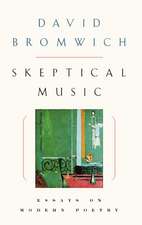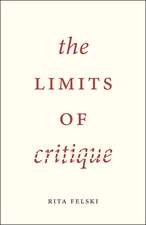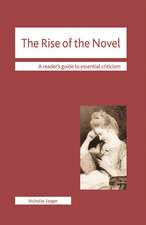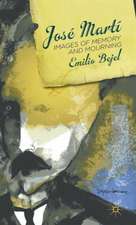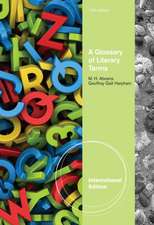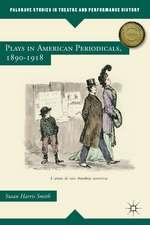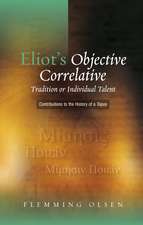The Ascetic Imperative in Culture and Criticism
Autor Geoffrey Galt Harphamen Limba Engleză Paperback – 30 noi 1992
In this bold interdisciplinary work, Geoffrey Galt Harpham argues that asceticism has played a major role in shaping Western ideas of the body, writing, ethics, and aesthetics. He suggests that we consider the ascetic as "the 'cultural' element in culture," and presents a close analysis of works by Athanasius, Augustine, Matthias, Grünewald, Nietzsche, Foucault, and other thinkers as proof of the extent of asceticism's resources. Harpham demonstrates the usefulness of his findings by deriving from asceticism a "discourse of resistance," a code of interpretation ultimately more generous and humane than those currently available to us.
Preț: 390.87 lei
Nou
Puncte Express: 586
Preț estimativ în valută:
74.79€ • 78.30$ • 61.89£
74.79€ • 78.30$ • 61.89£
Carte tipărită la comandă
Livrare economică 05-19 aprilie
Preluare comenzi: 021 569.72.76
Specificații
ISBN-13: 9780226316925
ISBN-10: 0226316920
Pagini: 344
Ilustrații: 27 halftones
Dimensiuni: 152 x 229 x 20 mm
Greutate: 0.57 kg
Ediția:1
Editura: University of Chicago Press
Colecția University of Chicago Press
ISBN-10: 0226316920
Pagini: 344
Ilustrații: 27 halftones
Dimensiuni: 152 x 229 x 20 mm
Greutate: 0.57 kg
Ediția:1
Editura: University of Chicago Press
Colecția University of Chicago Press
Notă biografică
Geoffrey Galt Harpham, professor of English at Tulane University, is the author of Getting It Right: Language, Literature and Ethics, also published by the University of Chicago Press, and On the Grotesque: Strategies of Contradiction in Art and Literature.
Cuprins
List of Illustrations
Acknowledgments
Introduction
One. The Ideology of Asceticism
1. Ascetic Linguistics
2. Technique and the Self
3. The Signs of Temptation
4. Narrative on Trial
Two. Discipline and Desire in Augustine's Confessions
1. The Language of Conversion
2. Profit and Loss in the Ascesis of Discourse
3. The Fertile Word
Three. A Passion of Representation: Grünewald's Isenheim Altar
1. Anonymity, Modernity, and the Medieval
2. Conceptual Narrative
3. A Passion of Representation
4. Asceticism and the Sublime
Four. Philosophy and the Resistance to Asceticism
1. Nietzsche: Weakness and the Will to Power
2. Saint Foucault
Five. The Ascetics of Interpretation
Notes
Works Cited
Index
Acknowledgments
Introduction
One. The Ideology of Asceticism
1. Ascetic Linguistics
2. Technique and the Self
3. The Signs of Temptation
4. Narrative on Trial
Two. Discipline and Desire in Augustine's Confessions
1. The Language of Conversion
2. Profit and Loss in the Ascesis of Discourse
3. The Fertile Word
Three. A Passion of Representation: Grünewald's Isenheim Altar
1. Anonymity, Modernity, and the Medieval
2. Conceptual Narrative
3. A Passion of Representation
4. Asceticism and the Sublime
Four. Philosophy and the Resistance to Asceticism
1. Nietzsche: Weakness and the Will to Power
2. Saint Foucault
Five. The Ascetics of Interpretation
Notes
Works Cited
Index




